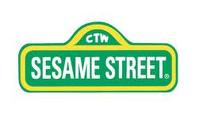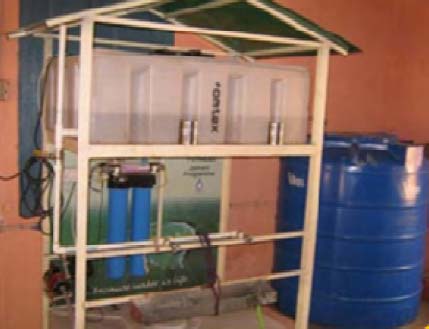/topics/health
Health
Goa, going, gone – A film by Carmen Miranda on Goa’s mining
Posted on 24 Sep, 2011 03:03 PMGoa, going, gone – A film by Carmen Miranda on Goa’s mining
As you may have assumed from its title, “Goa, going gone” is about Goa - - or more specifically, it’s about the environmental impact that is likely to result from the rampant mining that is underway in the state. Goa is being dug out of existence and gigantic craters expand across a 95 km long mining belt.
Coastal zone groundwater management: Need for legislation
Posted on 20 Sep, 2011 02:22 PMSesame Street invites applications for Public Health Consultant, New York & Advisor, India
Posted on 17 Sep, 2011 10:16 PM
Sesame Workshop, formerly known as the Children's Television Workshop (CTW), is a worldwide American non-profit organization behind the production of several educational children's programs that have run on public broadcasting around the world (including PBS in the United States). Sesame Workshop was instrumental in the establishment of education children's television in the 1960s, and continues to provide grants for educational children's programming four decades later.
Cost-effective urinals established for Musiri Boys High School, Trichy - A case-study of UNICEF- IIT-Delhi's project SCOPE
Posted on 17 Sep, 2011 07:04 PMGuest post by: SCOPE
Forwarded to the Portal by: Ramesh Sakthivel
"Per capita water availability to reduce by 2025", says Droplets: e-Newsletter from Everything About Water - August 2011
Posted on 17 Sep, 2011 06:18 PMArticle and Image Courtesy: Everything About Water
Highlights from the August edition of Droplets e-newsletter published by the Everything About Water
- India: Per capita water availability to reduce by 2025
- WHO: New guidelines for safer drinking water supply systems
Decentralized wastewater management – An overview of a community initiatives in New Delhi - Vigyan Vijay Foundation
Posted on 05 Sep, 2011 11:40 AMThis paper by Ajit Seshadri, Vigyan Vijay Foundation highlights the poor sanitation situation in India and argues that centralized approaches to wastewater treatment have had limited success and there is a need to make wastwater treatment people centric and effective through the use of decentralized systems such as DEWATS (Decentralized Wastewater Treatment Systems). DEWATS are locally organized and people driven systems that typically comprise a settler, anaerobic baffled tanks, filter beds of gravel and sand, and an open pond. The open pond or the polishing tank recreates a living environment for the wastewater to clean itself, naturally.
Assessment of Jalamani programme on stand alone water purification systems in rural India - A report by Centre for Media Studies
Posted on 03 Sep, 2011 04:50 PM This report by the Centre for Media Studies, New Delhi presents an assessment of the Jalamani programme of the Department of Drinking Water Supply, Government of India. The centrally sponsored programme commenced in 2008-09 aimed at installing simple Stand Alone Water Purification Systems (SAWPS) in rural schools to enable school children to have access to safe and clean water. The focus was on tackling bacteriological contamination and turbidity in ongoing rural drinking water supply programme.
This report by the Centre for Media Studies, New Delhi presents an assessment of the Jalamani programme of the Department of Drinking Water Supply, Government of India. The centrally sponsored programme commenced in 2008-09 aimed at installing simple Stand Alone Water Purification Systems (SAWPS) in rural schools to enable school children to have access to safe and clean water. The focus was on tackling bacteriological contamination and turbidity in ongoing rural drinking water supply programme.
The assessment study used both qualitative and quantitative techniques such as focus group discussions and in-depth interviews besides structured questionnaire for a variety of stakeholders and research questions. Another important aspect of the quantitative tools was testing of the raw and treated water samples. The study was undertaken in 320 schools spread across 20 districts and six states.
Integrated approach to solid waste management in Pune city – A working paper in MPRA
Posted on 31 Aug, 2011 07:02 PMSolid waste is increasing in the city due to growth of population, urbanization, higher per capita income and standard of living, changing lifestyle and food habits.
The first section of the paper explains about the structure of the solid waste in the city. The solid waste according to its constituents is presented in the second section. The third section of the paper explains about the regression result. The last section deals with the policy implication and conclusion.
Social equity and integrated water resources management – A background paper by Global Water Partnership
Posted on 31 Aug, 2011 04:10 PMIt provides an analytical framework that policy makers and water professionals can use to bring greater clarity to the issue of social equity in their local context.
Sanitation as a business - A new spin on the challenge of sanitation operation and maintenance - A paper by Water for People
Posted on 24 Aug, 2011 11:34 AMThis paper published by the Water for People describes Sanitation as a Business, an innovative approach to operation and maintainance challenges in household sanitation improvements, by describing the case of the implementation of the approach in the context of Malawi, by Water for People. The paper argues that programs that build latrines have consistently struggled to have impact or reach scale, and have often distorted the market environment in ways that have undermined future sanitation development.
The paper emphasises the relevance of this approach in the context of developing countries such as India by stating that the world would not be able to achieve even half of the Millennium Development Goals for sanitation at current rates of installation and consequently is projected to miss the sanitation MDG by more than 700 million people. Among the twenty two percent of those without access to improved sanitation, the greatest challenge remains in Asia and India in particular.





